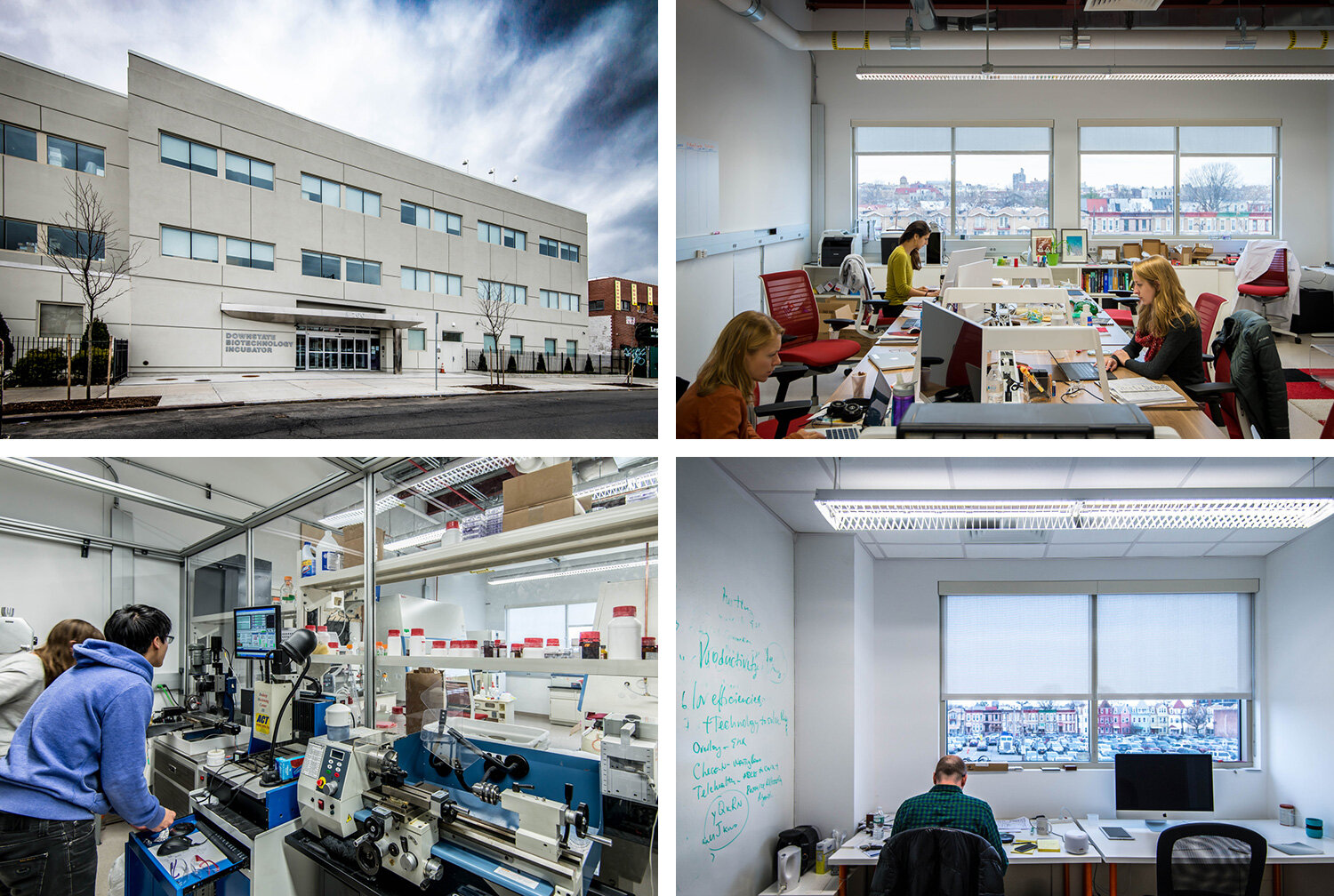What Private Research Companies Can Learn from “Convergent Science” in Higher Education
“Convergence” can be the key to unlocking revenue.
The boundaries between scientific disciplines blurred long ago, but increasingly science itself is converging with healthcare, the workplace and education: academic medical centers pursue bench-to-bedside translational research; “dry” computational labs can be indistinguishable from traditional offices.
Moreover, academic research increasingly resembles commercial R&D, and vice versa. Companies like Novartis and Amgen have long built headquarters that resemble college campuses, but more and more their research resembles academic science too.
Academic research institutions, with less pressure to commercialize findings right away, can sometimes be more flexible than private companies. When it is time to go to market, some can directly invest in startups; nearly all can leverage access to on-campus talent and advanced core facilities to attract startups and generate revenue.
Private companies can also enjoy these benefits, by forging close relationships with other research groups — particularly in incubators and innovation centers — when developing new avenues for launching products or investing in new startups. Designing facilities that foster these partnerships is often less straightforward than the laboratory design process of the past — it requires more interaction throughout the organization, as well as engagements with outside researchers, clinical providers, institutions of higher education and the community at large — but done well, the effort is worth it.
Here are three educational institutions that suggest how private companies can share space with research partners to realize greater innovation and higher return on capital investments:
Sharing Equipment and Services
New Jersey Institute of Technology (NJIT)
NJIT brings products and services to market by connecting the university, the state and private industry through its for-profit New Jersey Innovation Institute (NJII). These groups collaborate in facilities like NJIT’s Life Sciences and Engineering Center, which, in addition to housing standard teaching labs, was designed to be able to host public-facing initiatives like the BioCentriq cell and gene therapy center — here, private companies can reserve research space and equipment via a “hoteling” model, or even commission the center to operate projects for them.
Or take the Microfabrication Innovation Center, which houses a clean room where university and private researchers manufacture micro- and nanotechnology for “smart” healthcare applications. A forthcoming expansion will take these innovations further by enabling on-campus clinical trials.
Leasing Incubator Space
The State University of New York (SUNY) Downstate Health Sciences University
SUNY Downstate operates several biotechnology incubators, including one focused on early-stage startups adjacent to their main campus in central Brooklyn, and one in the Brooklyn Army Terminal for growing companies that need more space. The former offers a low cost of entry for students and entrepreneurs in a WeWork-style environment: modular wet and dry lab spaces, from 400 to 1200 square feet, furnished with utilities and breakout space for collaboration and socialization.
The latter, BioBAT, is a partnership between SUNY Downstate and the New York City Economic Development Corporation (EDC). Located in a repurposed industrial building, it requires higher upfront fit-out costs for tenants, but it offers greater flexibility for research and manufacturing, as well as access to research partners and state grants.
Improving Customer Service
Rutgers University
The Rutgers University Cell and DNA Repository (RUCDR) stores, processes and analyzes biomaterials to help allied commercial ventures monetize their biological assets, and can even design and execute studies on other researchers’ behalf. Though external parties aren’t typically allowed inside, the RUCDR space was renovated to help staff better serve their clients — now, a single contiguous space supports automation and makes workflows more efficient, and a flexible infrastructure spine allows equipment to be rapidly swapped out as necessary.




